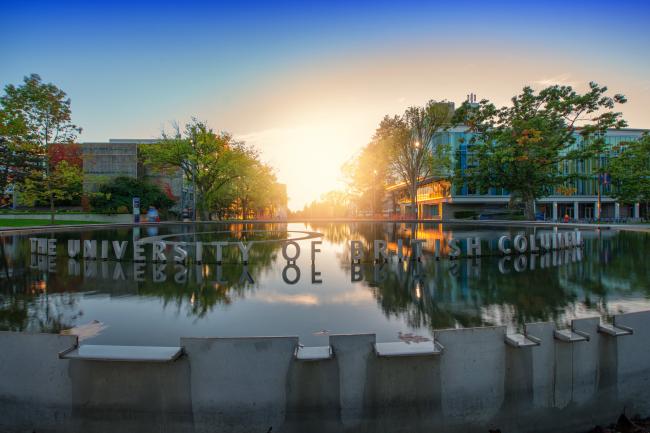Fitness
Computational sciences research at UBC gets Discovery Grant, CRC boost

Computer visualization, quantum computing, advanced mathematics and statistical models for conservation efforts are among the research areas being funded at UBC Science as part of the latest round of NSERC Discovery Grant investments.
The new Discovery Grant funding announced today will support 47 projects across the Faculty of Science, and totals more than $12 million. Of these projects, half are housed in the departments of Mathematics, Statistics, or Computer Science.
“Canada’s science and research sector is solving some of the world’s greatest challenges, all while driving innovation, growth and productivity,” said François-Philippe Champagne, Minister of Innovation, Science and Industry. “Research programs like Discovery give researchers the flexibility to explore the most promising avenues of research as they emerge to ensure Canada remains a world leader in science and new technologies. Congratulations to all exceptional researchers receiving support, we look forward to learning of your successes.”
Across UBC, 141 UBC researchers were awarded a combined total of $32.1 million over five years through the Discovery Grant program. The Natural Sciences and Engineering Research Council of Canada (NSERC) program is designed to support research with long-term goals rather than a single short-term project or collection of projects.
New NSERC Discovery Grant funding to UBC Science
Among the UBC Science projects announced today are:
Mansfield, Shawn (Botany)
It takes more than just bricks to build a wall: Elucidating the intricacies of plant cell wall synthesis
Berlinguette, Curtis (Chemistry)
Laboratory for accelerated decarbonization
MacLean, Karon (Computer Science)
Making affective touch a reality in a digital world
McDougall, Scott (Earth, Ocean and Atmospheric Sciences)
Development of new tools and techniques for the analysis and risk management of landslides and related geohazards
Cheung, William (Institute for the Oceans and Fisheries)
Fish and fisheries under marine extremes and compound events: Responses, resilience and solution options
Zahl, Joshua (Mathematics)
Advances in harmonic analysis using algebraic and combinatorial techniques
Bohlmann, Joerg (Michael Smith Laboratories)
Functional genomics and biochemistry of conifer terpenoid defense systems
Bonn, Douglas (Physics and Astronomy)
Multi-mode spectroscopy of high-mobility metals and superconductors
Auger-Méthé, Marie (Statistics)
Understanding the effects of anthropogenic pressures on animals and overcoming roadblocks to conservation: A statistical toolbox
O’Connor, Mary (Zoology)
Ecology of change: Metabolic scaling in symbioses, populations and communities
RNA biology and viral infections focus of new CRC
RNA and viruses will be the focus of a newly minted Canada Research Chair (CRC) at UBC Science also announced today, with Dr. Selena Sagan named the chair in RNA biology and viral infections.
Appointed to the department of Microbiology and Immunology, Dr. Sagan’s research explores how positive-sense RNA viruses—including hepatitis C, dengue and Zika viruses—usurp host cells, replicate their genomes, and cause disease. The Sagan lab has established a research program focused on host-virus interactions, (mi)RNA biology, and the molecular mechanisms underlying regulation of RNA accumulation, viral pathogenesis and innate immune responses.
“In today’s global knowledge economy, Canada needs good science and research knowledge to remain competitive,” said Yasir Naqvi, Parliamentary Secretary to the Minister of Health. “Investments, like the ones announced today, means scientists, researchers and students are supported to become global leaders in their field, helping expand the frontiers of science and investing in a better future for Canadians.”
Dr. Corinna Schindler, a synthetic organic and organometallic chemist newly appointed to the department of Biochemistry and Molecular Biology and jointly appointed to Chemistry, was awarded the CRC in synthetic solutions for bioactive compounds.
Recruited from the University of Michigan, Dr. Schindler’sprimary goal is to develop new synthetic methods based on transition metal catalysis to enable the synthesis of biologically active natural and unnatural products. Her research has a range of downstream applications, including improving certain cancer treatments.
Renewed CRC
The CRC in statistical ecology—held by Dr. Marie Auger-Méthé (Statistics, Institute for the Oceans and Fisheries)—was also renewed. The Auger-Méthé lab models animal behaviour using movement data to improve conservation efforts.


)






